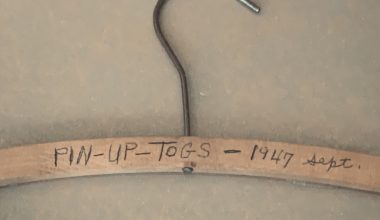Now heading into the eighth month of this “pandemic era,” I’m definitely starting to miss people in ways I never expected. And as much as I love the promises of a digital world, I prefer to connect people in person, not in pixels.
That said, I have been part of some extraordinary virtual convenings over the last few weeks. I’d like to give you a quick take on one such meeting that took place today. It was a refreshing few moments to step back from must-do Zoom calls without the pressure of being graded or on deadline. Today I got to do something I love. I got to connect people and share ideas.
As part of The Power Break, I had the chance to moderate a conversation with Frank-Jürgen Richter, a former director of the World Economic Forum and current chairman of Horasis Global Visions Community. Frank was careful to describe Horasis as a platform, not an organization. The topic was the digital transformation that has been thrust upon global opinion makers and civil society leaders by the global pandemic, and all the opportunity it can provide despite all the challenges.
Horasis was founded 16 years ago as a “place” where business, government, civil society leaders can meet and collaborate and exchange ideas, and it has been a huge success. Frank attributes the success to three key factors, which are instructive for all of us:
1) A sense of community with a multi-level stakeholder model. The goal is to connect people, connect topics, and connect to the future.
2) Purpose. The community wants to make the world a better place. They want to bring meaning to the corporate setting, and weave it into the DNA of companies.
3) Commitment to move from discussion to action. A focus on delivering results.
Frank answered questions in an open dialogue and according to Chatham House rules. He was honest and transparent. Here are some topline highlights from the conversation with Frank today and the ideas that jumped out at me:
● Is the “conference” as we know it dead? According to Frank, people have to exchange ideas and work on projects, to build a better future. This digital transformation has been freeing in a way, and he believes the future is likely one of more “hybrid” events, with in person and digital combined. We won’t be flying to a short meeting far away as frequently.
● We need new, flexible platforms and organizations that can serve as facilitators, one of the key roles of Horasis. Removing the formality of the big historic organizations that are bound by strict political rules or protocols, even opposing leaders can meet and discuss without the pressure and precedents that govern organizations such as the UN. While still indispensable and deserving our full support, there is a place for networks that go beyond multilateral frameworks or that extend their reach.
● Trust is still key. Always has been Always will. Where previously trust had developed over many, many years, nurtured by the times we were able to get together in person, this new digital transformation actually allows us to gain time, to speed up time. We are able to meet more frequently, more spontaneously, and are maybe even more likely to make new connections in the process. Not everything about the world of digital convening is “fast and therefore superficial.” A lot can happen when borders and barriers are removed and replaced with more dialogue.
● Digital transformation did not start with COVID–but it has been accelerated. There is a growing divide in the world between countries that are less developed and more developed. We see revolutions, people in the street. Citizens feel left out, discontent with those holding power. More and more people want the information, tools, and resources to bridge the divide and give citizens power. The digital transformation has made that more immediate and accessible than ever.
● Addressing climate change is an imperative top priority. Frank reiterated that this is a priority topic for most of the people he engages with as part of this community.
● Trade wars should not happen between friends. In his estimation, the world needs strong relations between the United States and Europe to counterbalance the growing influence from China, especially in regards to technology and artificial intelligence.
● Stimulus plans should reach beyond borders. Financial relief is a priority for national governments, which it must be. But national response to COVID has to transcend borders in order to be effective, and be a product of global collaboration and consensus. These interventions are also an opportunity to advance other goals, like rewarding solutions that ameliorate climate change.
As a big thinker with his finger on the pulse of influencers and thought leaders around the world, Frank advocated strongly for a global agenda that reflected more collaboration and less competition. He decried protectionism and nationalism in favor of new multi-national thinking that recognizes the reality of our economies and shared challenges. Through Horasis, he wants to engage enlightened leaders and spotlight the alternatives to populism.
When asked, “What can we do to make it better?” Frank said, “Get good people together to get involved in this transformation process.”
In other words, it’s up to us. I hope you’ll embrace opportunities to be part of great conversations like this. We may still need to social distance, but we need the ideas that bring us together maybe more than ever.

